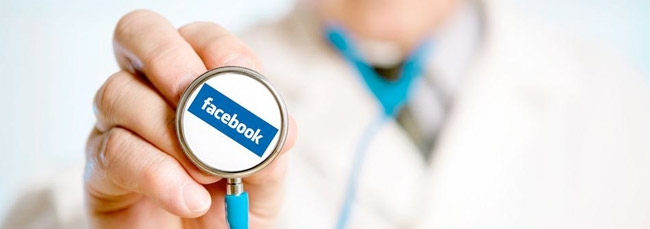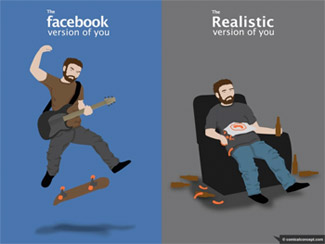I Read You Like An Open (Face)book. Or Did I Really?

We might not realize it because of how it has become a fixture in our lives, but the way we engage with Facebook can have a profound impact on our social wellness. Here’s a deep dive into the effects and authenticity of Facebook, how much is facade and what’s more, what we might unconsciously be revealing through our posts.
Think about this: If you had to be surrounded by models and superstars all day, do you think you would pay more attention to your physique and fashion? Flipping through your friends’ Facebook photos can have the same impact. Despite being a community of everyday people you know, when is the last time you posted a not-so-flattering photo of yourself as your profile picture? Probably never and this is understandable. 
Or ask yourself this: have you ever dressed up when you’re feeling a little sluggish? Tried to make a conscious effort to be patient when you’re overtired? Smile when you’re feeling down? We all try these little tricks and they can be good ways to turn a mood around. However, that approach might cause what’s been recently reported about in Reuters as “Facebook Envy,” and the emotional impact is reportedly not just jealously.
According to the research1, “Witnessing friends' vacations, love lives and work successes on Facebook can cause envy and trigger feelings of misery and loneliness.” (Goldmsith, 2013). The Wall Street Journal2 also published research that examined the social impact of Facebook, analyzing the profiles of 200 students at the University of Washington and the University of Wisconsin-Madison. As they reported, about 30 percent of students posted updates that met the American Psychiatric Association’s criteria for a symptom of depression (Hoffman, 2013).
It seems “Keeping up with the Jones’” is alive and well across social media. But if the “grass is greener” on your friends’ Facebook pages, be aware that this may be a false reality. Here are two examples:
The status update: Do I post a status about feeling tired from a long work week? I mean yes, I probably have. But truthfully, I am more likely to post a picture of toasting with a friend with some cheerful caption like, “Cheers to a successful and productive week!” for no other reason than to stay upbeat and positive.
The profile photo: The process probably goes something like this: “Really, how does that girl in my cousin’s friend’s roommate’s picture have such perfect hair?” Which is followed by, “Where’s that picture from when I had my hair professionally done for that wedding,” and then finally, each and every one of Mary Sullivan’s, err I mean “your”, Facebook friends receive a “News Feed” update announcing that you’ve updated profile picture.
But don’t think this is me just pontificating. Mashable recently covered research from University of Missouri that found that “whether you post once an hour or once a month can be an indicator of your psychological state.” Wish I read that research before I spent so much time painstakingly selecting a photo that would convince the Facebook world that I wake up with Reese-Witherspoon-at-the-Oscars curls.
The next time I find myself mindlessly clicking through friends’ photos and statuses, I’m going to try and be a bit more mindful about my mental thought process and make sure I’m not turning into a green-eyed monster. In the meantime, I wonder how much of my Facebook is a mask. What do you think? Are you an open Face-book? ![]()
1 Goldsmith, B. (2013, January 22). Is facebook envy making you miserable?. Retrieved from http://www.reuters.com/article/2013/01/22/us-facebook-envy-idUSBRE90L0N220130122
2 Hoffman, J. (2013, January 23). Trying to find a cry of desperation amid the facebook drama. Retrieved from http://www.nytimes.com/2012/02/24/us/facebook-posts-can-offer-clues-of-depression.html?pagewanted=all&_r=2&
